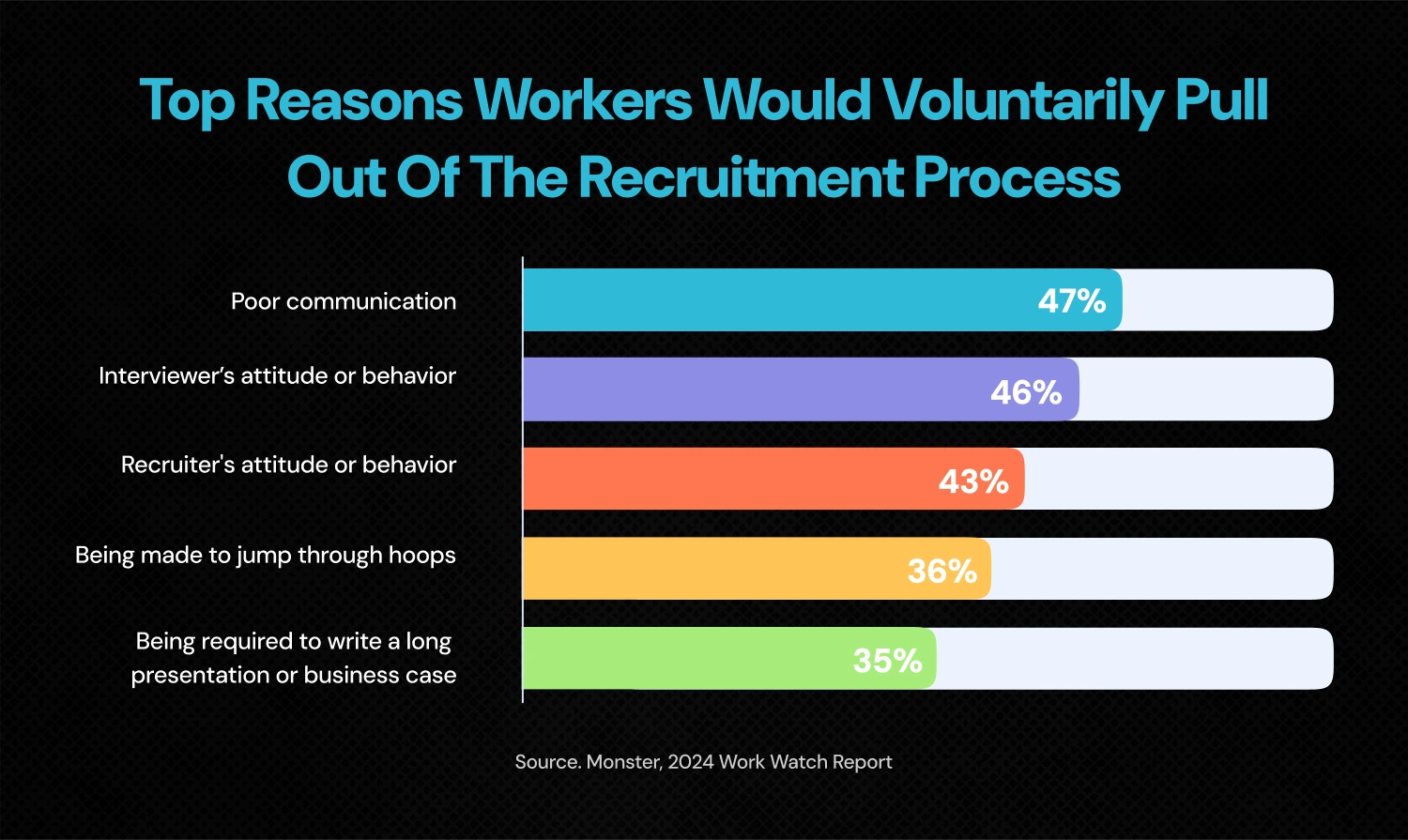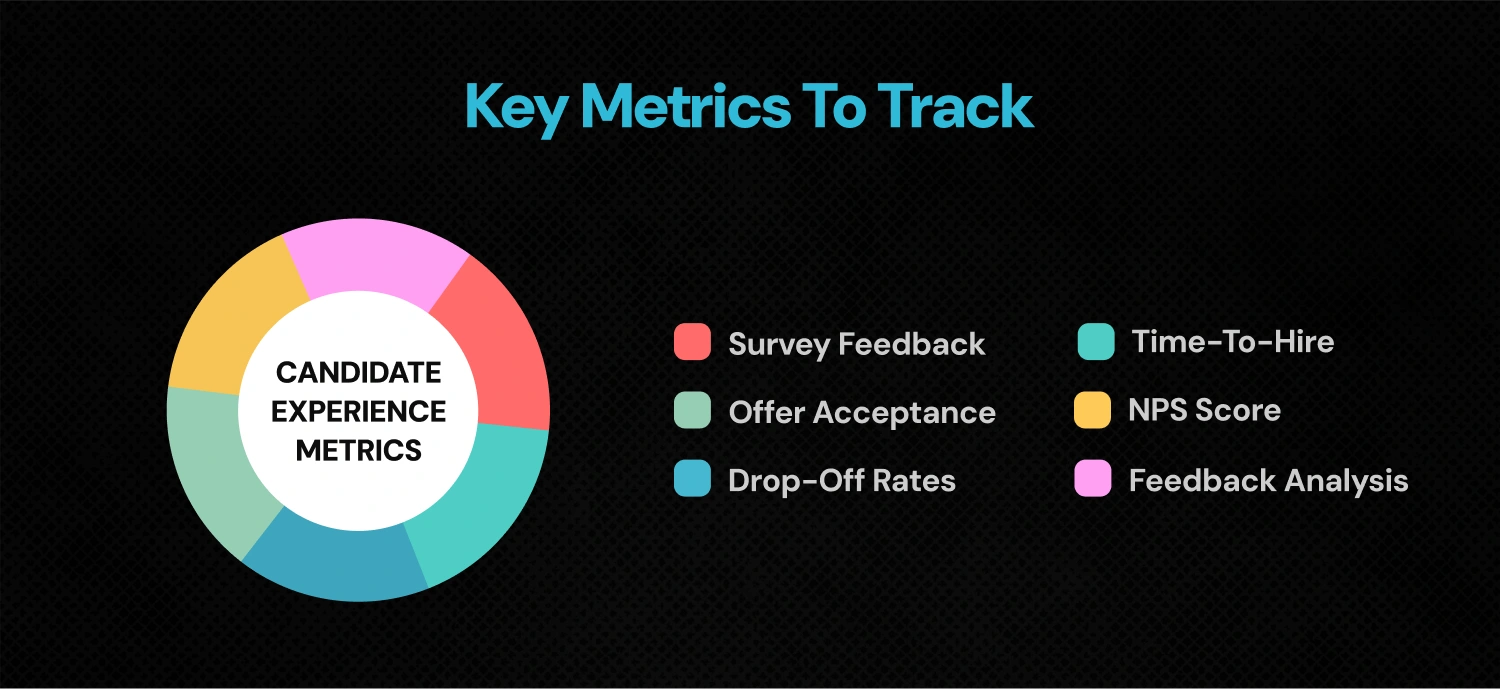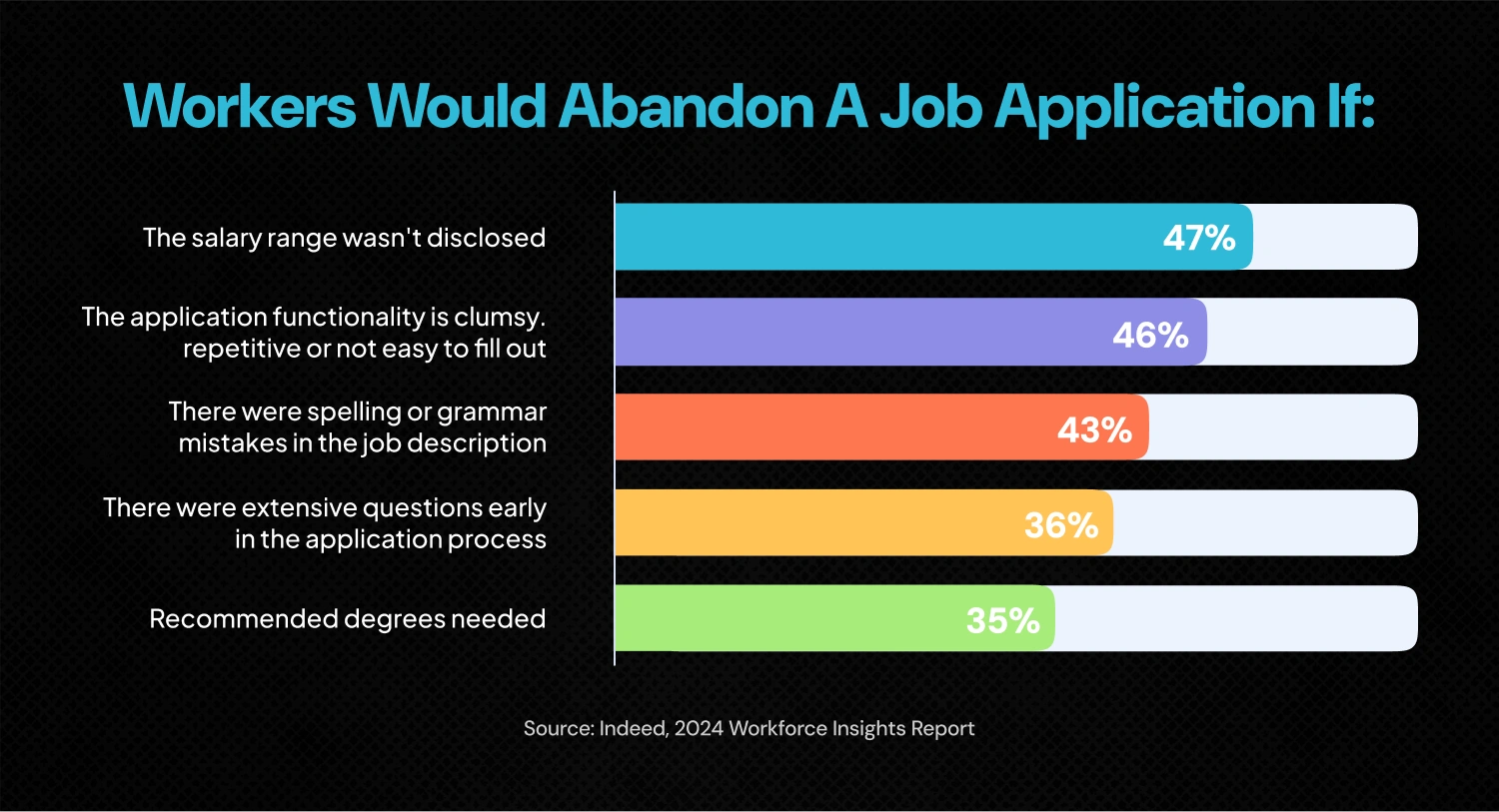5 Strategic Ways to Improve Candidate Experience in Recruitment
Read Time
10 minutes
Updated On
January 9, 2026
.jpeg)
Ruchi Kumari
Content & Thought Leadership

Every great hire starts with a great first impression. When a talented professional considers joining your organization, their journey begins long before they walk through your doors. It starts with that first job posting they encounter, continues through every email exchange, and culminates in either a successful partnership or a missed opportunity that could have transformed your business.
The candidate experience in recruitment isn't just about being nice to applicants, it's about building a strategic advantage that attracts top talent, strengthens your employer brand, and drives measurable business results. For teams exploring how to improve candidate experience, every touchpoint matters. In today's competitive talent landscape, the companies that master this experience are the ones that win the best people.
The candidate experience in recruitment has evolved from a nice-to-have courtesy to a business-critical function that directly impacts your bottom line. Here's why it should be at the top of every recruiter's and HR professional's priority list.
The statistics surrounding candidate experience paint a clear picture of its importance:

According to Harvard Business Review research on hiring practices, most companies have no idea whether their hiring process actually works. Candidates can sense this uncertainty, and it reflects poorly on your organization's professionalism and attention to detail.
Beyond the immediate impact on hiring, candidate experience affects your employer brand long-term. A positive experience turns candidates into brand ambassadors, even if they don't get the job. Conversely, negative experiences can damage your reputation and make it harder to attract quality candidates in the future.
When building your HR contact list, remember that every interaction contributes to how your organization is perceived in the professional community.
You can't improve what you don't measure. To create an exceptional candidate experience in recruitment , you need to establish clear metrics and feedback mechanisms that provide actionable insights.
Key Metrics to Track

These insights help you identify areas for improvement and celebrate what's working. The data also provides concrete evidence to support process changes and resource investments. When combined with smart automation like an AI recruiter agent, your measurement strategy becomes more scalable, adaptive, and personalized, key traits of every modern hiring team aiming to improve candidate experience best practices.
Creating a memorable candidate experience in recruitment doesn't require overhauling your entire recruitment process overnight. Strategic improvements in key areas can deliver significant results.
Clarity is king in candidate communication. Candidates want to know exactly what the role entails, what skills are essential, and what success looks like. Avoid vague phrases like "must be a team player" and instead focus on concrete responsibilities and qualifications.
What this looks like:
Incorporating this type of clarity is one of the most impactful candidate experience best practices. Transparency helps candidates self-select, saving time for everyone while ensuring better fit quality.
Nothing kills enthusiasm faster than a long, complicated application process. Make your forms concise, mobile-friendly, and easy to navigate. Nearly half of job seekers (49%) agreed that most job application processes are too long and complicated. This could be hurting your conversion rate: 33% of workers said they’d abandon a job application if it was clumsy, repetitive, or not easy to fill out.

Offer options like LinkedIn or Google profile imports to speed things up, and clearly communicate the expected timeline so candidates know when they'll hear back.
Remember, when you're using your B2B mailing lists for cold outreach, perhaps targeting specific groups like a small business owners list. The same principles apply; simplicity and clarity drive better engagement.
Silence is the enemy of engagement. Automated emails confirming receipt of applications are the bare minimum. Go further by sending timely updates about next steps, interview schedules, or delays. Personalize messages to show candidates they're more than just a resume in a pile.
Timely, transparent communication is one of the core candidate experience best practices and a major differentiator in modern talent acquisition.
When candidates aren't selected, a polite, honest explanation can turn disappointment into a positive experience. Feedback shows respect and helps candidates improve, building goodwill that can pay off down the line.
While automation can speed up processes, don't let it strip away warmth. Use AI tools to handle repetitive tasks, but keep recruiters involved in meaningful conversations. Candidates want to feel heard and valued.
This is where AI recruiting agent play a vital role in supporting recruiters, not replacing them.
AI-Powered Solutions for Better Candidate Experience:

Leading organizations across industries are demonstrating the tangible benefits of prioritizing candidate experience:
These success stories share common elements: clear communication, respect for candidates' time, and strategic use of technology to enhance rather than replace human connection.
Delivering an outstanding candidate experience is no longer optional, it's essential for competitive success. With the right mindset, proven best practices, and smart technology integration, you can create a recruitment process that's efficient, fair, and truly human-centered.
Great candidate experience isn't about being nice, it's about being professional, efficient, and respectful. It's about valuing people's time and giving them the information they need to make informed decisions about their careers.
Remember, candidates don't just join companies, they join experiences. In a competitive talent market, a positive candidate experience can be the difference between landing your top choice and settling for whoever's left.
Stop losing great candidates to terrible experiences. Start treating your hiring process like the business-critical function it actually is, and watch as your ability to attract and retain top talent transforms your organization's success.
Make your candidate experience unforgettable, for all the right reasons.
